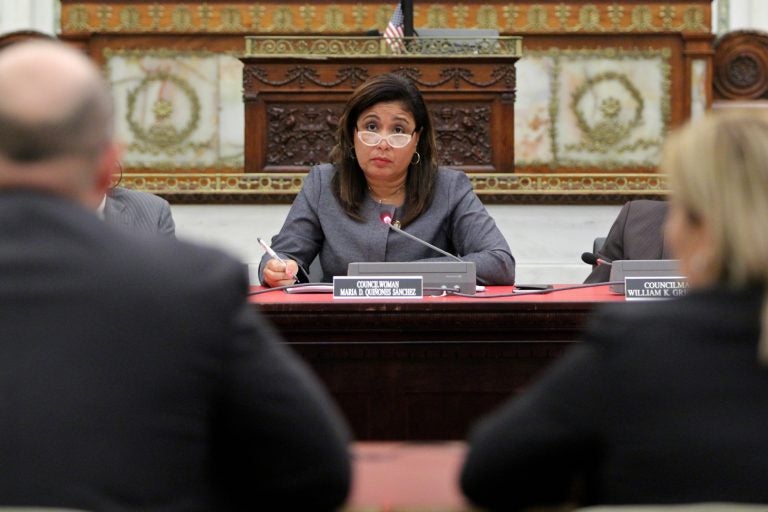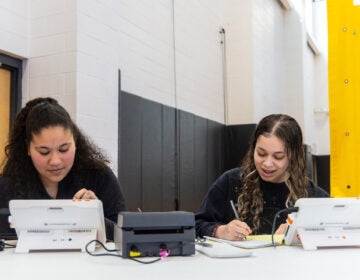Philly ID program explores partnerships with libraries and prisons
Philadelphia moved closer to creating a municipal ID program Tuesday, as a City Council committee advanced an amended bill spelling out how residents can qualify for the cards
Listen 1:08
Philadelphia City Councilwoman Maria Quiñones-Sánchez hears testimony on her bill, which would authorize the city to issue municipal identification cards. (Emma Lee/WHYY)
Philadelphia moved closer to creating a municipal ID program Tuesday, as a City Council committee advanced an amended bill spelling out how residents can qualify for the cards.
Documentation from a domestic violence shelter, or a school ID card, for example, will qualify to help establish proof of identity. Kids as young as 13-years-old can also get the official photo ID.
“For a municipal ID program to be successful and sustainable, the program must be inclusive and accessible,” said Deputy Managing Director Joanna Otero-Cruz.
Municipal ID programs are a way to give people who may not qualify for a driver’s license a photo ID — that’s why they’re embraced by advocates for the homeless and undocumented immigrants. That’s also what’s made them controversial. Groups that want to lower immigration to the U.S., such as the Center for Immigration Studies (CIS), criticize municipal IDs for making life easier on unauthorized immigrants.
For these programs to work, a lot of other residents will have to get on board. Lionel Rabb of Omicron Technologies, the vendor selected by the city to manage the rollout, told City Council members they are currently exploring partnerships with the Free Library, and with the office that oversees Philadelphia city employee IDs, to find ways to make the cards more useful — or at least not redundant.
“By applying the Free Library barcode or their member ID to the municipal ID gives an opportunity for residents and people to not have to get an additional card,” he told members of the Committee on Licenses and Inspections. Otero-Cruz also said the Managing Director’s Office is having conversations with the Philadelphia Department of Prisons, to make sure that when people leave that system they can have the opportunity to get a municipal ID.
In early August, the Kenney administration announced the cards would roll out in January 2019, an announcement years in the making. Kenney and Councilwoman Maria Quiñones-Sánchez co-sponsored the first attempt to pass a bill in City Council back in 2013.
Now, the process to start up the ID program is in motion, but City Council still must pass a bill to codify parts of the vetting procedure. Municipal ID cards have to walk a fine line between being verifiable, relying on personal data provided by cardholders, without storing that data in a way that could trigger privacy concerns. In New York City, concerns about who would be able to access that data — for example, whether address data for immigrants living in the city could end up with federal immigrant enforcement — have been fanned widely and even landed the New York City in court.
On the other side, a card that is too easy to obtain could be vulnerable to abuse. City Councilman Alan Domb asked Rabb whether Omicron, which managed Chicago’s municipal ID program, had noticed incidences of fraud or misuse there.
“Before the program started in December, there were two small cases. One was someone took a picture [of an ID card] off the internet, put their picture in place of our city clerk, with the city hall address, and then laminated it,” he said. The person then tried, unsuccessfully, to cash a check in Iowa.
Philadelphia’s municipal ID program is still slated to roll out in January, however Otero-Cruz said the cards would be piloted first with “internal departments and some stakeholders,” such as outreach groups to people with opioid addictions.
WHYY is your source for fact-based, in-depth journalism and information. As a nonprofit organization, we rely on financial support from readers like you. Please give today.




